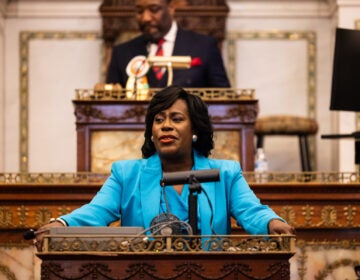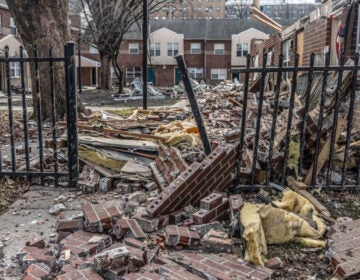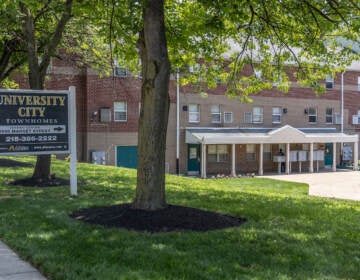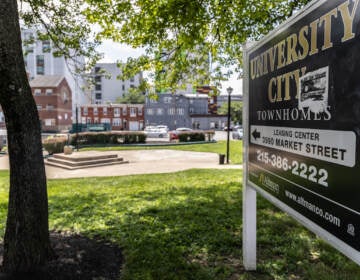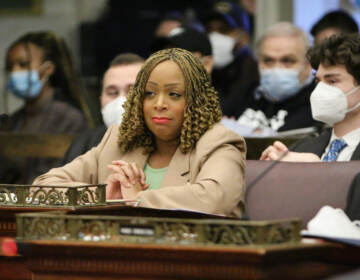Philadelphia Housing Authority is moving closer to constructing 75-unit apartment building at former UC Townhomes site
The affordable housing complex is gone, but a new development will rise in its place following a legal settlement with the city.
Listen 1:14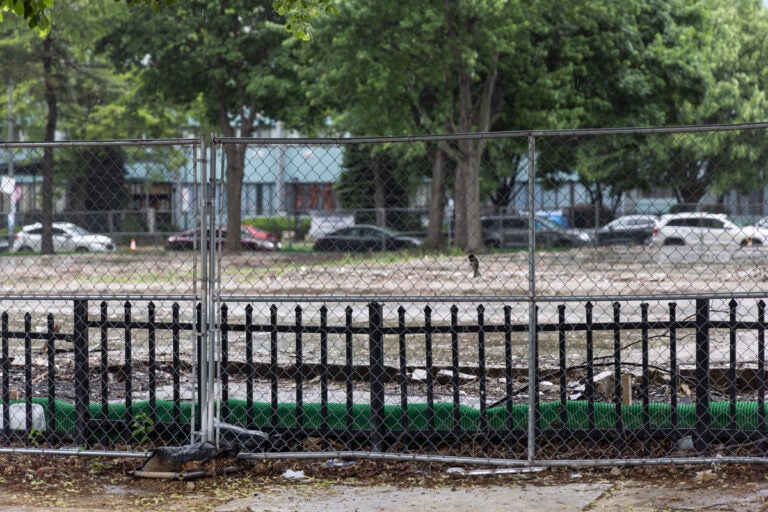
The lot where the UC Townhomes once stood on 3900 block of Market Street in Philadelphia. (Kimberly Paynter/WHYY)
Have a question about Philly’s neighborhoods or the systems that shape them? PlanPhilly reporters want to hear from you! Ask us a question or send us a story idea you think we should cover.
The Philadelphia Housing Authority is slated to build a permanently affordable, 75-unit apartment building on a section of valuable land previously occupied by the University City Townhomes.
PHA is reviewing three submissions in response to a request for proposal issued earlier this year. The public agency will then make a recommendation to its Board of Commissioners, which must approve the development concept before the project’s design phase can get underway.
Construction is expected to start next year and take approximately 15 months to complete. A community engagement process will play out beforehand.
“We’re excited about developing that and having an affordable housing presence on the site. This is an area where we are seeing rapid gentrification happening. A lot of rentals are increasingly becoming unaffordable,” PHA President Kelvin Jeremiah said.
The new development will rise on a roughly half-acre parcel donated to the city under a legal agreement reached in 2023. The land is part of a block-long site at 39th and Market streets that will also be home to a still-to-be-determined market-rate development.
University City Townhomes, a 70-unit affordable housing complex, stood on the site for nearly 40 years before it was shuttered then demolished last year. The property was closed after its owners, IBID Associates, decided not to renew the affordable housing contract they had maintained with the U.S. Department of Housing and Urban Development for decades.
The move forced all of the complex’s tenants to relocate, sparking outrage among housing advocates and elected officials, who decried the displacement of Black working-class families in a swiftly gentrifying neighborhood with a limited supply of affordable housing.
Critics also took issue with the closure of a complex built with the explicit goal of providing affordable housing in a section of West Philadelphia some still refer to as the “Black Bottom.” This was after the city demolished hundreds of neighborhood homes in the late 1960s and early 1970s to make way for a science and technology campus — what today is known as the University Science Center.
Most of the complex’s residents used housing choice vouchers to rent elsewhere on the private market. Jeremiah said former tenants will get preference if they apply for one of the new development’s one-, two- or three-bedroom units.
“But not a right to return,” Jeremiah said.
In 2022, IBID filed a federal lawsuit against the city and City Councilmember Jamie Gauthier, whose district includes the townhomes site. The decision came after Philadelphia City Council passed contested legislation designed to preserve the townhomes, which IBID said violated its “constitutionally protected right” to sell the complex.
The suit settled about a year later, handing the city part of the site for a new affordable housing development.
The property will be part of a broader PHA initiative to remake and expand its public housing portfolio over eight years.
The city has committed $14 million to the project. Jeremiah could not provide a total price tag for the development.

Subscribe to PlanPhilly
WHYY is your source for fact-based, in-depth journalism and information. As a nonprofit organization, we rely on financial support from readers like you. Please give today.




